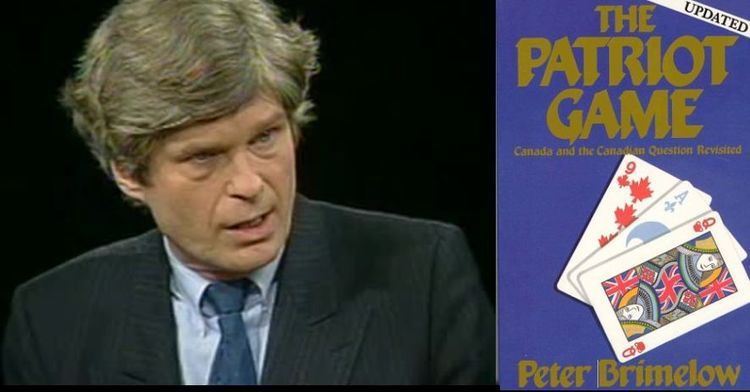
A Theory About Canada
04/25/1987
The Patriot Game, By Peter Brimelow, Key Porter, $24.95
Reviewed by Noreen Rasbach
The Kingston Whig-Standard
Kingston, Ontario
April 25, 1987
DURING HIS BID for the Progressive Conservative leadership in 1975, Joe Clark consented to an interview with the Financial Post and was quizzed by Peter Brimelow, a British-born journalist living in Canada.
In his account of the interview, Brimelow says that Clark fell apart when asked about a report by the Economic Council of Canada that advocated continental free trade. Clark confessed his ignorance of economics and told Brimelow, "When I went into politics I had to choose between learning economics and learning French."
Clark chose French.
Brimelow’s use of this incident as an introductory anecdote to The Patriot Game is fitting because it captures the gist of his thesis. Now a U.S. resident, Brimelow apparently lived in Canada long enough to develop strongly-held views on the Canadian political system.
His main argument, his self-proclaimed "General Theory of Canada," is that the federal government cowtows to Quebec to sustain Confederation, giving the French-speaking province a special and unnatural status. Clark, by learning French rather than economics, the lifeblood of any Western political system, became the country’s leader partly because he made the right choice.
Brimelow adapts the theory of well-known American neo- conservative Irving Kristol by stating that the political agenda in Canada is determined by a "new class" — educators, politicians and civil servants in Ottawa who together promote nationalism, specifically bilingualism and welfare economics. The new class began its influence during Pierre Trudeau’s term as prime minister, but is still firmly established in Canada. Joe Clark and Brian Mulroney, though Progressive Conservatives, have continued in the Liberal Party’s footsteps.
Brimelow’s analysis of Canadian politics over the past two decades is clear and persuasive but his conclusions are startlingly absurd. He thinks that English Canadians will come to realize their fundamental opposition to the new class’s aims, and recognize their true place as "part of the greater English-speaking nation of North America." Canada, he writes, is "a distinct section (of the U.S.), like the South or the Midwest, differing in nuance from the other sections but sharing a fundamental culture."
Presumably, when Confederation collapses, English Canada will take its rightful place and join the United States.
Brimelow sees Quebec as a Francophone nation-state, with its own language, culture and political traditions, which have evolved over the course of Confederation. Francophones are "acquiring both the ability and the collective momentum to force change upon the Canadian Confederation," with the most natural change being total separation.
Brimelow’s theory about the demise of Confederation reflects a common problem with conservative thinkers, who find it difficult to analyze Canadian politics without inevitably reaching the conclusion that English Canada should join the U.S. While ignoring Canadian political, social and cultural history, such a conclusion also contradicts conservative movements in other countries, including in the U.S. itself, which stress patriotism and uphold traditional values, along with free-market economics.
The fact that Brimelow is not a Canadian may be used by readers, rightly or wrongly, to dismiss his book. And that’s too bad, because much of his analysis is credible, and provides a refreshing conservative viewpoint that isn’t heard often enough in Canada. Noreen Rasbach is a Whig-Standard copy editor.
(Copyright The Kingston Whig-Standard 1987)
